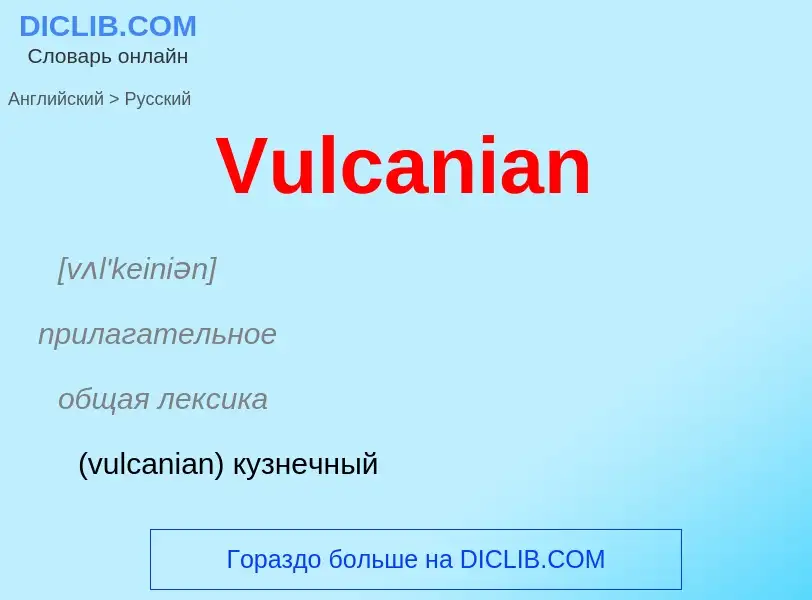Vertaling en analyse van woorden door kunstmatige intelligentie
Op deze pagina kunt u een gedetailleerde analyse krijgen van een woord of zin, geproduceerd met behulp van de beste kunstmatige intelligentietechnologie tot nu toe:
- hoe het woord wordt gebruikt
- gebruiksfrequentie
- het wordt vaker gebruikt in mondelinge of schriftelijke toespraken
- opties voor woordvertaling
- Gebruiksvoorbeelden (meerdere zinnen met vertaling)
- etymologie
vulcanian - vertaling naar Engels
[vʌl'keiniən]
прилагательное
общая лексика
(vulcanian) кузнечный
относящийся к металлу
(vulcanian) вулканический
мифология
относящийся к Вулкану
вулканов
общая лексика
вулканский
Definitie
Wikipedia
A Vulcanian eruption is a type of volcanic eruption characterized by a dense cloud of ash-laden gas exploding from the crater and rising high above the peak. They usually commence with phreatomagmatic eruptions which can be extremely noisy due to the rising magma heating water in the ground. This is usually followed by the explosive clearing of the vent and the eruption column is dirty grey to black as old weathered rocks are blasted out of the vent. As the vent clears, further ash clouds become grey-white and creamy in colour, with convolutions of the ash similar to those of Plinian eruptions.
The term Vulcanian was first used by Giuseppe Mercalli, witnessing the 1888–1890 eruptions on the island of Vulcano. His description of the eruption style is now used all over the world. Mercalli described Vulcanian eruptions as "...Explosions like cannon fire at irregular intervals..." Their explosive nature is due to increased silica content of the magma. Almost all types of magma can be involved, but magma with about 55% or more silica (e.g. basaltic andesite) is most common. Increasing silica levels increase the viscosity of the magma which means increased explosiveness.

